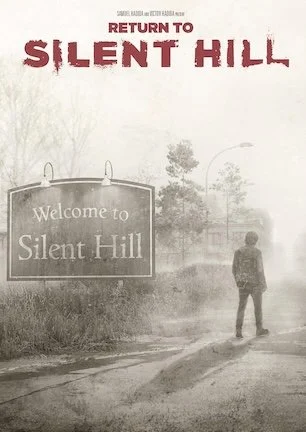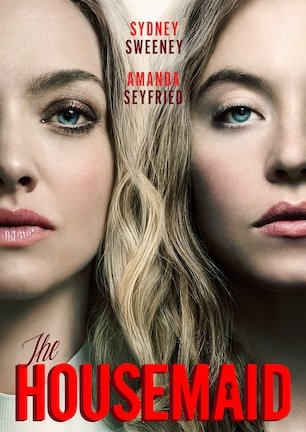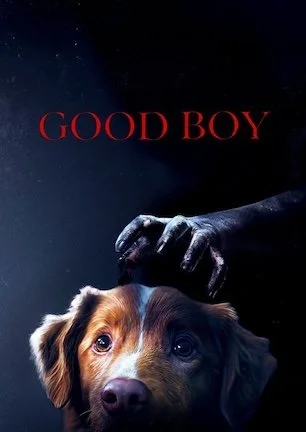Studio: Wild Eye Releasing
Director: Cody Meirick
Producer: Cody Meirick
Stars: R.L. Stine, Peter Schwartz, Barbara Schwartz, Daniel Schwartz, Sandy Vrabel, Gary Alan Fine
Review Score:
Summary:
Authors, artists, educators, and fans discuss the impact and influence of writer Alvin Schwartz and illustrator Stephen Gammell’s “Scary Stories to Tell in the Dark” books.
Review:
Somehow, the ‘Scary Stories to Tell in the Dark’ books escaped me growing up. My fascination for all things horror started with Universal Monsters classics on Saturday afternoon TV and swiftly extended to comics, games, and definitely books. Yet I don’t remember seeing ‘Scary Stories’ anywhere, or hearing anyone mention them, even though the second volume’s release in 1984 would have hit the sweet spot for nine-year-old me. My local library must not have carried it, or else kept it somewhere impressionable eyes couldn’t see.
Given my curiosity in Satanic Panic hysteria, it’s just as odd that I don’t remember the call to censor the series from schools after the third and final volume hit shelves in 1991. I was out of the age range for the material by then. But it seems like I would have had a cynical ear to the news about “won’t someone think of the children!” parents pushing to ban something controversial, especially as a heavy metal loving teen whose interests were under constant attack in the media.
Nevertheless, Stephen Gammell’s eerie illustrations eventually made it into my mind’s eye, even if I didn’t know his name, or the name of ‘Scary Stories’ author Alvin Schwartz. I couldn’t tell you from where that awareness finally came. But with the 2019 feature film produced by Guillermo del Toro rebuilding buzz for the brand, I came to envy the fervent fandom for the property that regrettably passed me by. Cleary, ‘Scary Stories to Tell in the Dark’ made an indelible impact on many young readers, not unlike R.L. Stine’s “Goosebumps” series did a decade later, or Harry Potter after that.
With all of this in mind, I went into first-time filmmaker Cody Meirick’s documentary “Scary Stories” eager to be enlightened about the Schwartz/Gammell trilogy and its pop culture popularity. This seemed to be an ideal introduction to getting curled toenails wet regarding what makes these titles tick.
I wish I could tell you I came out completely converted. However, choppy construction and a sometimes-scattered conception leave “Scary Stories” short of being a fully informative film. It’s still satisfactory for whetting an appetite. I just wish it served a more substantial meal.
‘Scary Stories to Tell in the Dark’ author Alvin Schwartz died in 1992. Illustrator Stephen Gammell notoriously keeps out of the public eye like Bill Watterson or Steve Ditko. Cody Meirick thus has to begin behind an 8-ball with his subject’s two most important people being entirely unavailable to contribute.
Meirick does the next best thing by turning to Schwartz’s family for a handful of talking heads. Wife Barbara and daughter Elizabeth appear briefly to touch on Schwartz’s personal and professional lives. Grandson Daniel takes viewers on a quick tour of the Princeton library where Schwartz researched several stories. Daniel never really knew his grandfather though, so if we’re being frank, almost anyone could do the same job of cursorily reading a few passages from the books.
Schwartz’s son Peter emerges as the movie’s most prominent player. In discussing his estranged father, Peter gets surprisingly personal about their rocky relationship. His emotional recollections, which include a regret about not saying “I love you” the final time he saw Alvin, give “Scary Stories” its most human moments, hinting at an author who was challenged at home almost as much as his books were in public. “Scary Stories” flirts with some provocative reflections here, although the movie doesn’t dive much deeper than mere mentions.
“Scary Stories” also scratches the surface of the controversy concerning the series’ arguable appropriateness for children. Some segments don’t grow beyond disposable anecdote, such as one librarian’s detailed recollection of defying her boss’s request to pull the book. Meanwhile, Sandy Vrabel appears in 1990s news footage leading her PTA’s fight to ban ‘Scary Stories to Tell in the Dark.’ Vrabel also appears for a new interview still holding firm on the position she had then.
Inserting a throughline of sorts, “Scary Stories” winds down by documenting the first meeting between Alvin Schwartz’s son Peter and his father’s almost-nemesis Vrabel. It’s a cordial conversation, not at all confrontational. The two of them mostly muse politely, but don’t really reach a resolution since they never truly had a score worth settling to begin with. It’s all very anticlimactic.
Pressed to beef up its runtime, “Scary Stories” stretches itself to 83 minutes with largely inconsequential inclusions of seemingly random fans. Before revealing her sleeve of Gammell-inspired tattoos, “Scary Stories” shows us a montage of one fan opening coffee creamer and frying bacon while preparing breakfast for her son. I’m not sure what purpose such shots serve. “Scary Stories” isn’t either, which is how its distracting habit of jumping from one theme to another and then suddenly back again gets in the way of creating a concrete narrative.
55/100 is a fair score for a movie that certainly means well, but trots in circles due to repetitive music and reused B-roll cutaways. “Scary Stories” doesn’t have enough footage to flesh out a consistent focus. This is a shame because the doc hits a few interesting ideas, such as when folklorist Gary Alan Fine draws contemporary political parallels with ‘The Mexican Pet’ urban legend. Then the film flips to two men on a street saying how scary Stephen Gammell’s drawing of Harold the scarecrow was and you have to wonder what the movie means to say.
My thermometer for taking a documentary’s temperature usually asks two questions. Am I more knowledgeable about the topic and am I inspired to continue researching it on my own? Yes and no. In the case of “Scary Stories,” I don’t have a newfound urge to finally pick up Schwartz and Gammell’s three books. From the perspective of this particular uninitiated reader, a tighter focus on Schwartz’s writing, research, and impact while reducing fandom fluff would boost “Scary Stories” from decent documentary to definitive primer on ‘Scary Stories to Tell in the Dark.’
Review Score: 55






While the 110-minute runtime could use a trim to maintain more energy, “Redux Redux” is an easy recommend for anyone who enjoys low-key sci-fi.